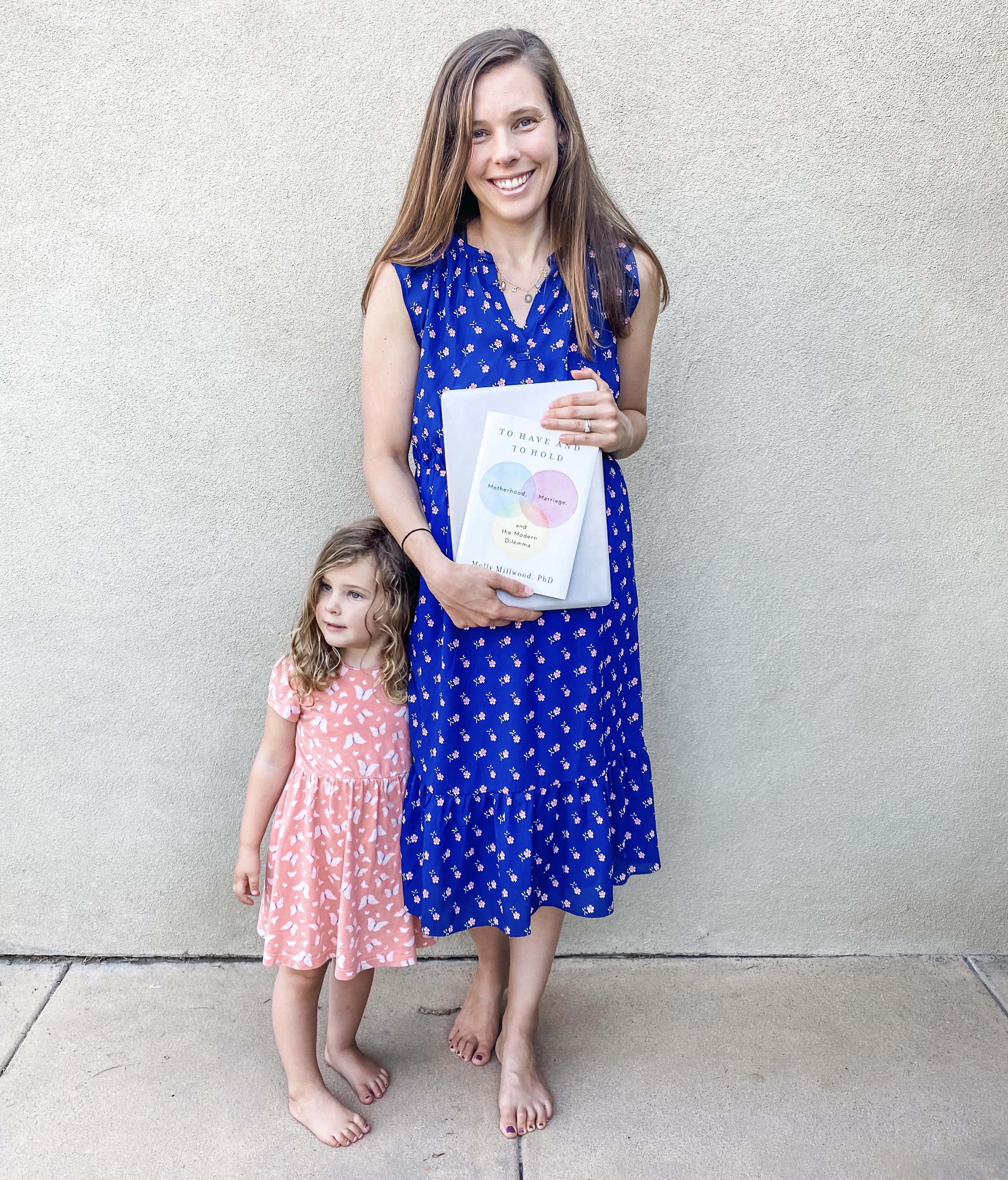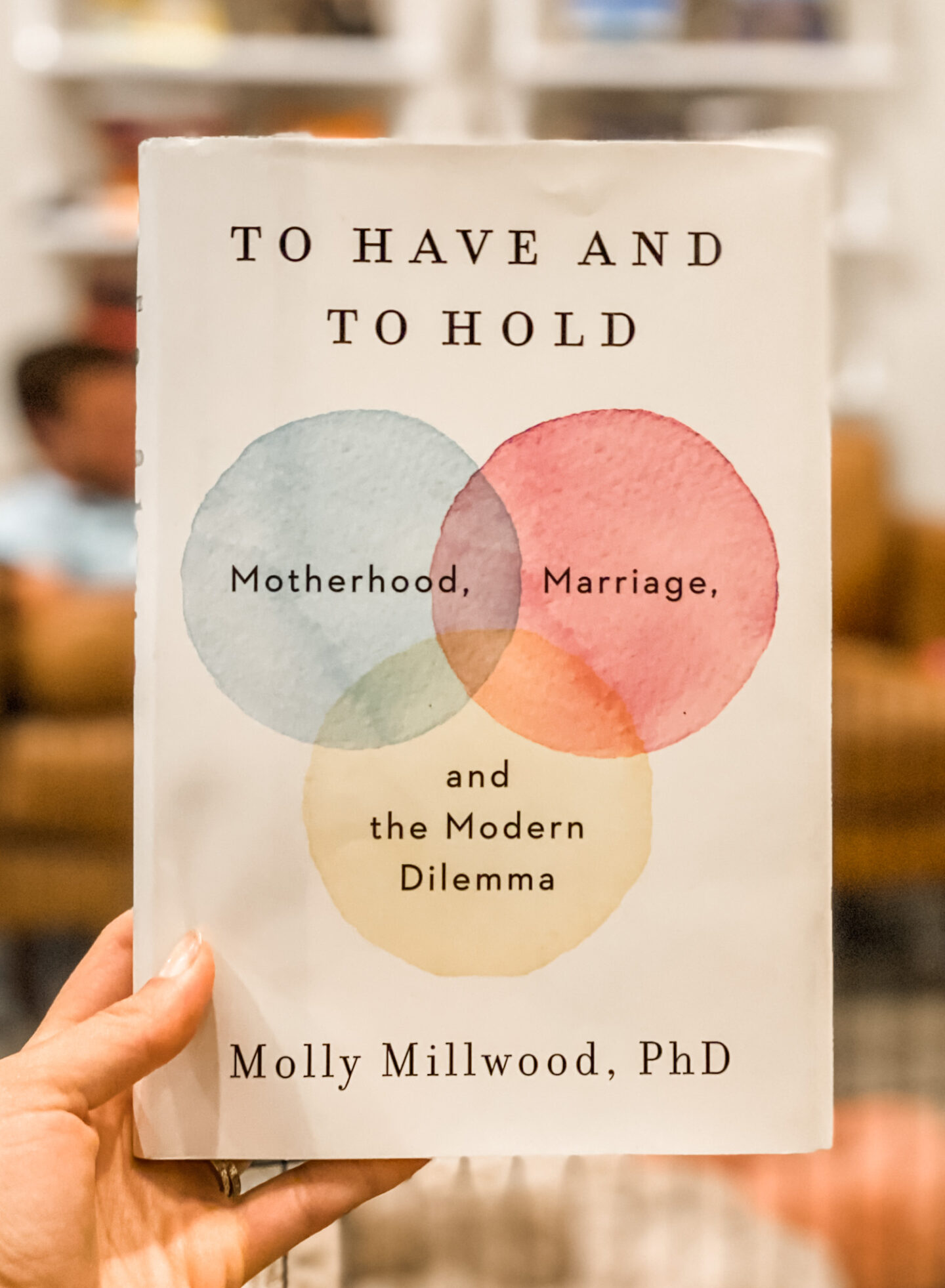The pandemic turned me into a stay-at-home-mom, and I’m not sure how I feel about it.
This past week was hard. My son, now almost 19 months old, is still in the midst of a seemingly never-ending sleep regression. Not only was is he refusing to go to bed, but he has also figured out how to climb out of his crib—in his sleep-sack no less. For his own safety, and as something of a last-ditch effort to encourage him to sleep independently, we transitioned him from a crib, to a toddler bed. While we are now able to put him to bed, lock the baby gate, and enjoy a relatively quiet, child-free moment in the living room, he still putters around him room until about 9 p.m., “reading” books, and singing about trucks.
Had this scenario happened last year, I would probably have thrown in the towel around 7 p.m. I would have placed the squirmy toddler in Dan’s lap, grabbed my backpack and laptop and announced that I was off the clock. Last year, when I was teaching full-time, the post-bedtime evening hours were crucial. I had to make sure lessons were prepped, grading was finished, and my email inbox was cleared out. It was stressful, no doubt, and I didn’t always want to crack the computer back open, but it was also somewhat freeing. There was a clear line in the sand where my “mothering” duties ended, and my breadwinner responsibilities began. I could clock out of one job and into another without feeling guilty, and never (read: rarely) resented my husband, Dan, when he did the same.
During the years when I was a working mother, Dan and I engaged in many a crucial conversation concerning how we could carve out a relatively egalitarian division of responsibilities at home. While this may be an unpopular opinion, I believe that there are fundamental differences in the ways in which men’s and women’s brains work—especially when it comes to planning and preparing household tasks. Figuring out how to work around these differences, and make sure that we both felt appreciated and seen, was not easy, but I think we did pretty good job of it.
But when the roles suddenly shifted, I had a difficult time figuring out what needed to change, and what didn’t. Parenting small children is a full-time job. It’s also the kind of job where you can feel like you are racing from task to task all day, working harder than you ever worked at your “real” job, only to find that it’s 5 p.m., your child is crying, you never did get to that mounting pile of laundry, and the kitchen is definitely not clean enough to cook dinner in.
This week, as I lay on my son’s floor at 8 p.m. (because, having spent every hour of the last six months with “mama,” no one else would do), I thought a lot about the boundaries I used to have. While I am filled with absolute gratitude for the fact that Dan is able to support our family in this incredibly difficult time, and that I get to snuggle my baby to sleep at night without worrying about answering emails or grading papers, and that I don’t have to deal with the myriad of completely unreasonable demands being placed on classroom teachers right now, I also feel a little bit lost.
I miss being able to kiss my children goodbye, and know that they are going to be loved, challenged, and well-cared for by their daycare teachers. I miss stopping at the Starbucks drive-through on my way to work, and treating myself to a latte with money that I earned myself. I miss chatting with other adults in the teacher’s lounge while I make copies in the morning. I miss teaching, and putting my three, well-earned degrees to use. I miss picking my kids up at the end of the day, and smothering them with kisses, and feeling recharged enough to be truly engaged in their nonsense stories about things they may or may not have actually done that day.
I don’t say any of this to romanticize what it’s like to be a working mother. In fact, some of the major differences I have noticed since not going back to work, are that I have a much better handle on my anxiety, I sleep better, and I feel like I have only one job (albeit one that never ends), as opposed to two. In many ways, I found being a working mother, especially in the field of education, totally unsustainable. But I still wish there was a middle ground: a place where I could do both, and not feel like I was constantly struggling to breathe.
I read an amazing book recently, called To Have And To Hold, by Molly Millwood, and would recommend it to any mother, but particularly those who are grappling with work-life balance, and the sharing of responsibilities at home. Millwood is a mother, and a therapist, who has spent her career working with couples, and new mothers. Her honesty about the reality of parenting and the effect it can have on a couple’s relationship is so refreshing, and made me feel validated in seen in so many of the experiences I have had over the past several years.
In the chapter entitled “It Takes A Village to Raise a Mother,” Millwood talks about the system the U.S. government set up in 1945 to support mothers who had to go back to work while their husbands were at war. She talks about the “multipurpose centers” where women could drop off their children, AND THEIR LAUNDRY, on their way to work, and then return to pick up, not only their children and clean laundry, but also a home-cooked meal. To be totally honest, I cried when I read this. As most mothers know, working or not, this scenario is an absolute dream.
Millwood’s contention is that, as working motherhood has become more of a norm, our society has begun to view it as “normal,” and even “desirable.” Thus, we have also come to see working motherhood as something inherently sustainable: If so many other mothers do it, why can’t you?
However, Millwood also says that “there remains a significant discrepancy between mother and father in terms of how much the baby occupies mental and emotional space.” While mothers may find freedom and fulfillment in going to work, they aren’t necessarily letting go of a disproportionate level of responsibility for their children, and this can often lead to feelings of overwhelm and resentment.
Basically, you’re damned if you do, and damned if you don’t, and despite the fact that I read books about these issues, journal about them, and engage in deep conversations with my friends and family, I still don’t really know what the right answer is. At the current moment, I am filled with gratitude for this time with my children, but I also can’t really imagine not going back to work. A part of me wishes I was in the classroom, but an even bigger part knows that the stress of it would be (and was), detrimental to my physical and emotional health.
What I do know, however, is that something needs to change. Women run the world; honestly, and truly we do. Men may make more money, and are in more positions of power, but women do literally everything else. It’s about time that society, employers, our government, and all the people who depend on both the paid and unpaid work of women take a closer look at the current system and the ways in which it’s failing us, before this pandemic, and our culture in general, turns the conundrum of modern womanhood into an absolute crisis.
If you are feeling similarly, I am an open book, and am ALWAYS willing to chat. My DMs are open @thepaperdart, or you can leave a comment below. And if you are a mother, or know a mother who is struggling, I cannot recommend Millwood’s book enough. You can purchase it from the link below, or find it at my bookshop.org page.
Happy reading, happy mothering, and happy everything else you do.
XO, Katherine
The Book: Click to Purchase


